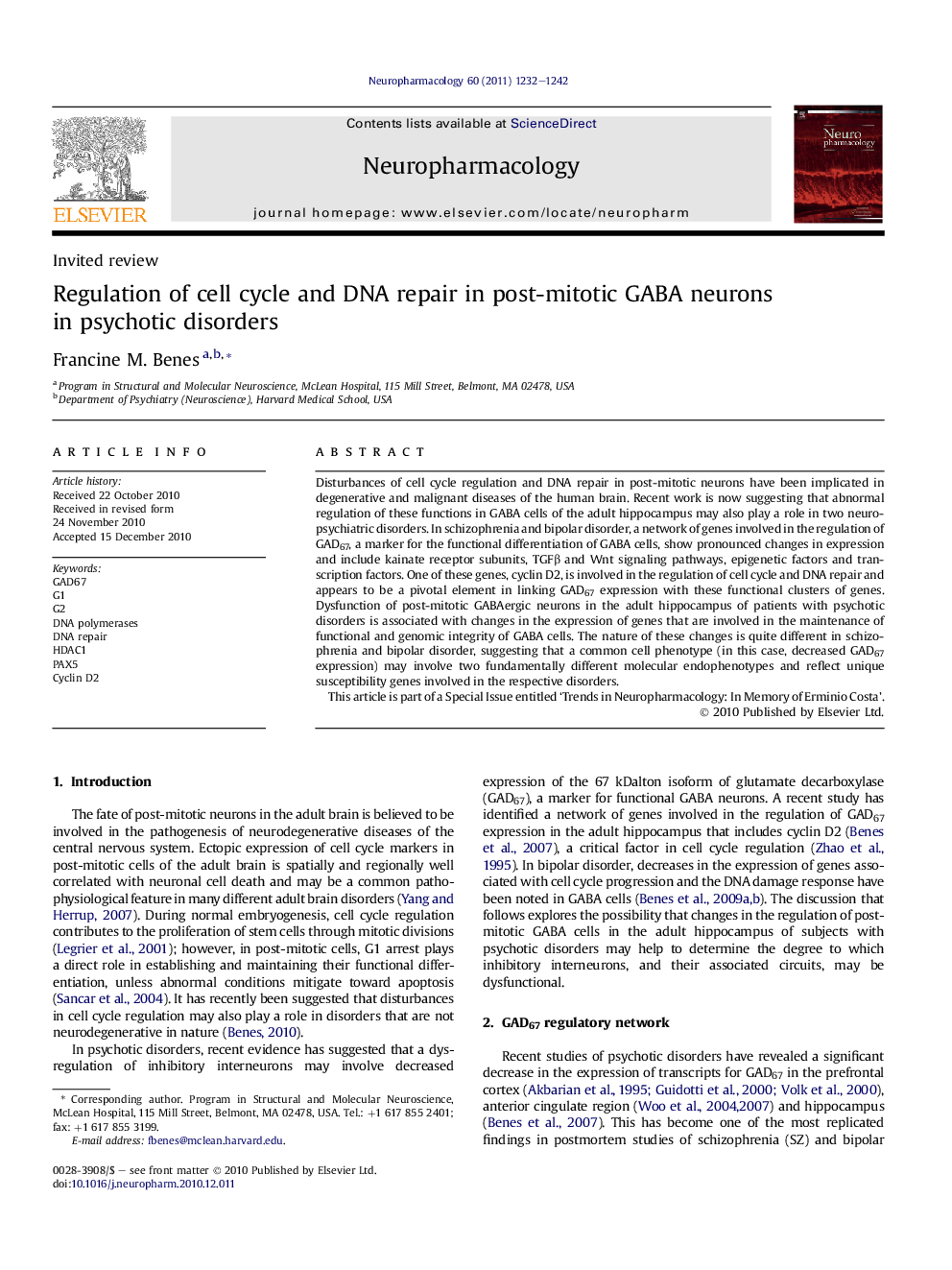| Article ID | Journal | Published Year | Pages | File Type |
|---|---|---|---|---|
| 2493712 | Neuropharmacology | 2011 | 11 Pages |
Disturbances of cell cycle regulation and DNA repair in post-mitotic neurons have been implicated in degenerative and malignant diseases of the human brain. Recent work is now suggesting that abnormal regulation of these functions in GABA cells of the adult hippocampus may also play a role in two neuropsychiatric disorders. In schizophrenia and bipolar disorder, a network of genes involved in the regulation of GAD67, a marker for the functional differentiation of GABA cells, show pronounced changes in expression and include kainate receptor subunits, TGFβ and Wnt signaling pathways, epigenetic factors and transcription factors. One of these genes, cyclin D2, is involved in the regulation of cell cycle and DNA repair and appears to be a pivotal element in linking GAD67 expression with these functional clusters of genes. Dysfunction of post-mitotic GABAergic neurons in the adult hippocampus of patients with psychotic disorders is associated with changes in the expression of genes that are involved in the maintenance of functional and genomic integrity of GABA cells. The nature of these changes is quite different in schizophrenia and bipolar disorder, suggesting that a common cell phenotype (in this case, decreased GAD67 expression) may involve two fundamentally different molecular endophenotypes and reflect unique susceptibility genes involved in the respective disorders.This article is part of a Special Issue entitled ‘Trends in Neuropharmacology: In Memory of Erminio Costa’.
